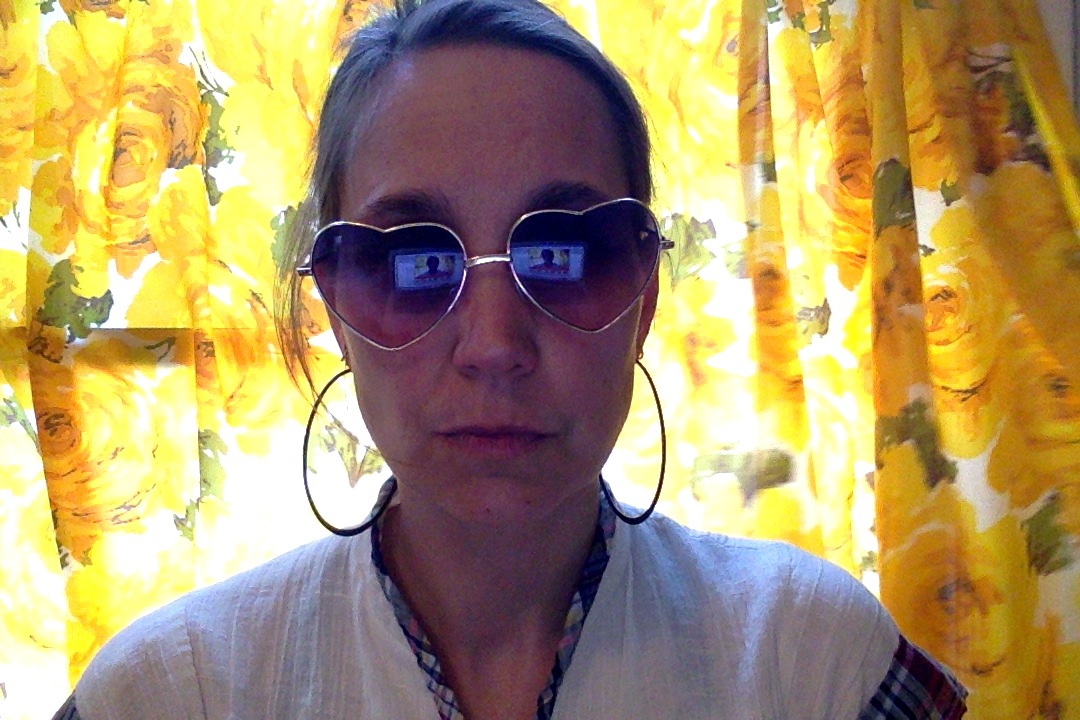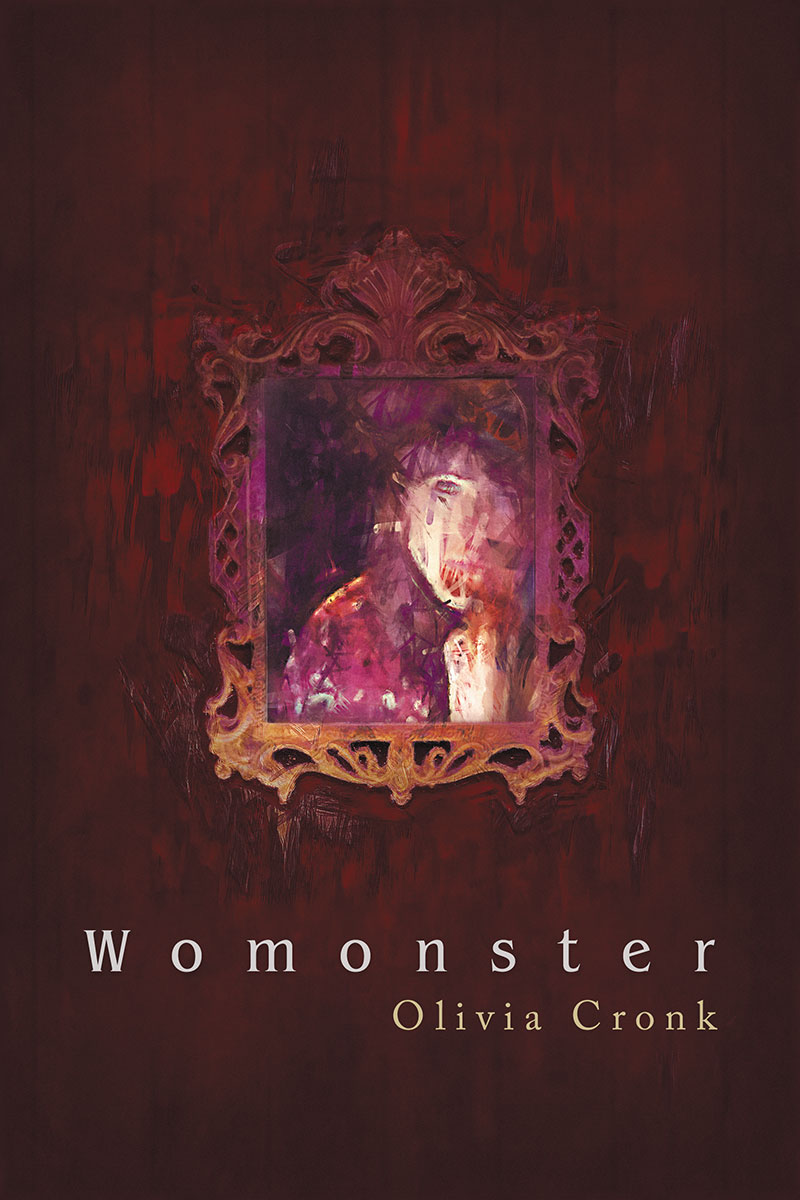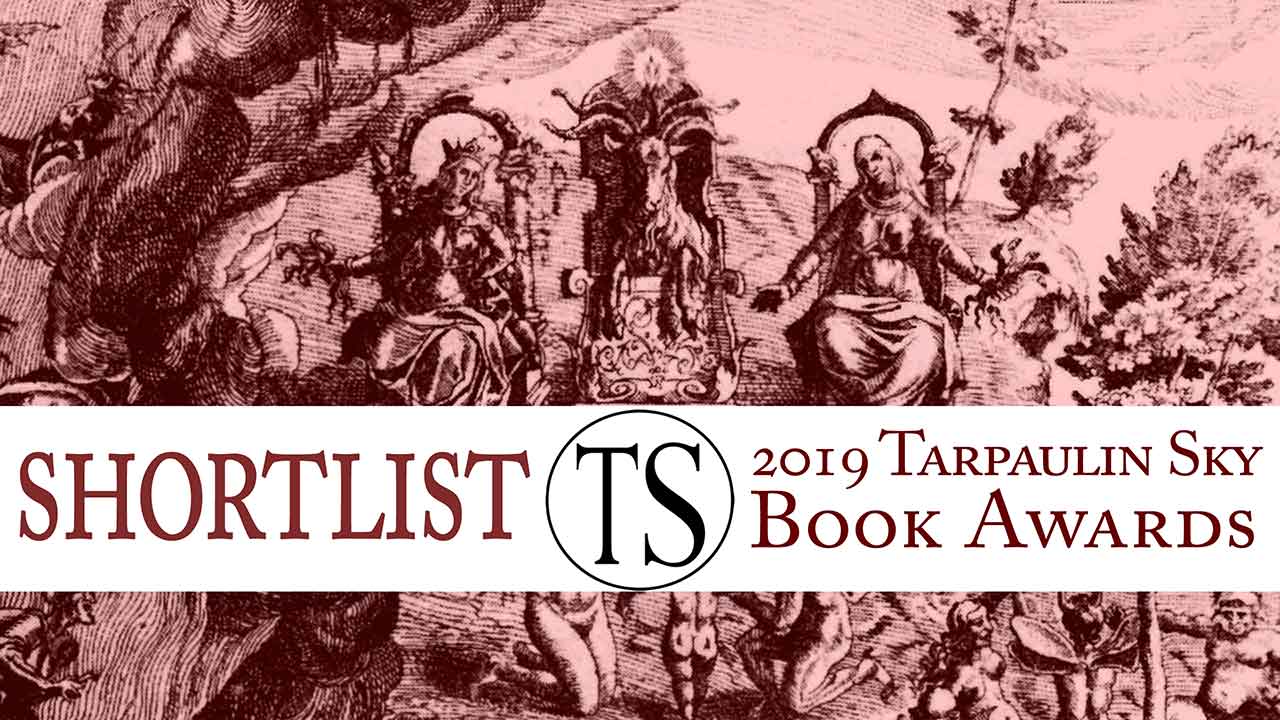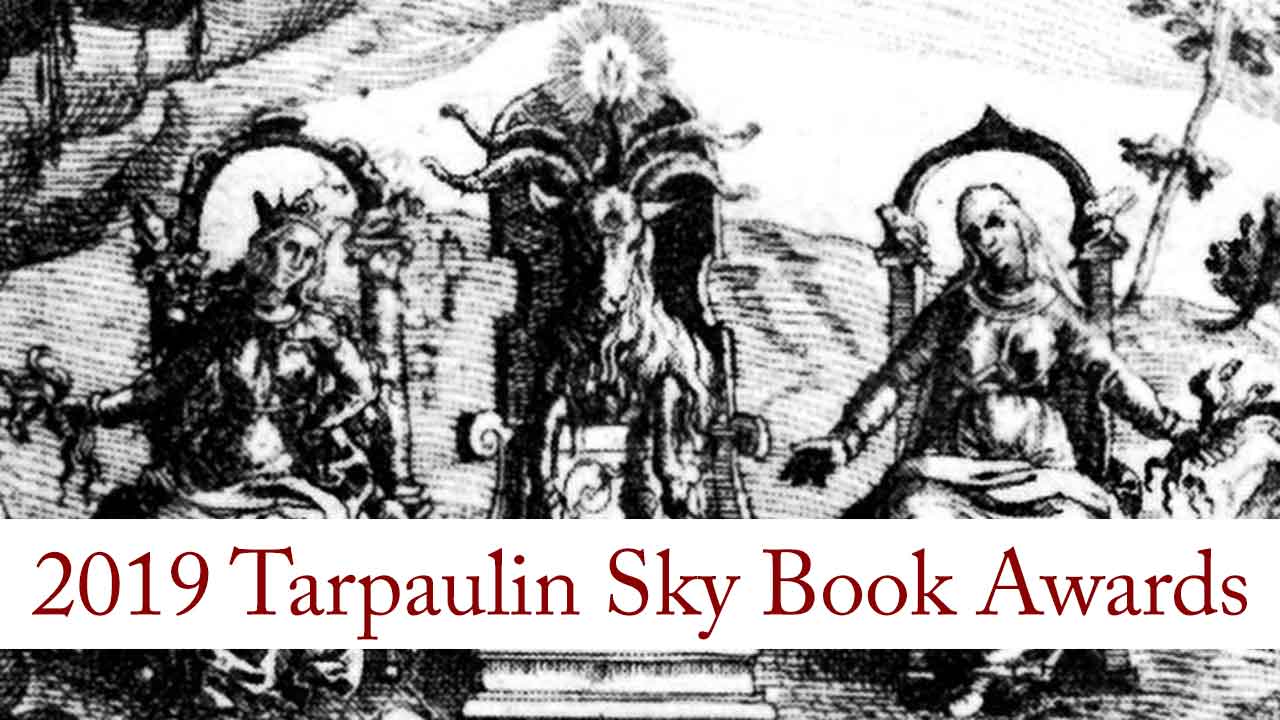Olivia Cronk
Olivia Cronk is the author of Womonster (Tarpaulin Sky Press, 2020), Louise and Louise and Louise (The Lettered Streets Press, 2016) and Skin Horse (Action Books, 2012). With Philip Sorenson, she edits The Journal Petra.


Olivia Cronk
Olivia Cronk is the author of Womonster (Tarpaulin Sky Press, 2020), Louise and Louise and Louise (The Lettered Streets Press, 2016) and Skin Horse (Action Books, 2012). With Philip Sorenson, she edits The Journal Petra.

Womonster
by Olivia Cronk
Poetry 100 pp. June 2020.
Taking the form of two long poems, “Interro-Porn” and “Chenille,” Womonster explores the often monstrous and buffoonish impossibility of a coherent self, even as its speakers take great pleasure in the performance of selves. Everywhere absorbing and leaking other media, Womonster is a “sloppy” text, at once nauseating and thrilling, psychedelic and domestic.
Taking the form of two long poems, “Interro-Porn” and “Chenille,” Womonster explores the often monstrous and buffoonish impossibility of a coherent self, even as its speakers take great pleasure in the performance of selves. Everywhere absorbing and leaking other media, Womonster is a “sloppy” text, at once nauseating and thrilling, psychedelic and domestic.
“Olivia Cronk’s Womonster is a performative feat, a book that makes being out of pretending. With her big earrings and dark eye makeup, this Womonster devours everything; she’s a thief and a trickster. Cronk creates a home for the reader, offering us the constraints the Womonster desires; it is a space of freedom, of possibility. I was thrilled and moved by this wild book, which moves from an explosive rejection of narrative to the creation of a theater of home, that shabby, beautiful structure built with girly hope, our fortification against loss.” (Suzanne Scanlon) “How does a person come to a self, ‘the self I wish to manufacture, curate…’ Are there any right questions we can ask of this process or of the self in question? Who gets to ask? Maybe the only one who can is the book we make of ourselves. With Womonster, Olivia Cronk shows that we are other people as much as we are our various selves. We are the people who share our lives; we are our loved ones and our aggressors. If this makes us monsters, then everyone’s a monster. As monsters, we are free to enchant and to be enchanted, existing as all-ourselves, for all-ourselves.” (Jay Besemer) “Cronk’s writing is forensically spooky. When we are asked: ‘DID YOU ever get into the stagnant bath of a real confession? Slip inside into living in a body as a site of decadent filth?’ there is no value judgement, just a recognition of our horrible desires. When the narrator tells us that they are interested in: ‘a dress opening up / to a delightful horde / of frightened spiritualists,’ we are brought closer to Cronk’s territory of occult sadomasochistic desire. Womonster is both a hyper-abject soap opera of beige underwear, dusty crystal, sinks full of bloodied dishes, and a redemptive horror story about the power of becoming the monster.” (Laura Ellen Joyce) “Olivia Cronk is one of my favorite US poets over the past 15 years. Womonster is something like Lars Noren’s Revolver rewritten with Ouija board.” (Johannes Göransson)
“Olivia Cronk’s Womonster is a performative feat, a book that makes being out of pretending. With her big earrings and dark eye makeup, this Womonster devours everything; she’s a thief and a trickster. Cronk creates a home for the reader, offering us the constraints the Womonster desires; it is a space of freedom, of possibility. I was thrilled and moved by this wild book, which moves from an explosive rejection of narrative to the creation of a theater of home, that shabby, beautiful structure built with girly hope, our fortification against loss.” (Suzanne Scanlon) “How does a person come to a self, ‘the self I wish to manufacture, curate…’ Are there any right questions we can ask of this process or of the self in question? Who gets to ask? Maybe the only one who can is the book we make of ourselves. With Womonster, Olivia Cronk shows that we are other people as much as we are our various selves. We are the people who share our lives; we are our loved ones and our aggressors. If this makes us monsters, then everyone’s a monster. As monsters, we are free to enchant and to be enchanted, existing as all-ourselves, for all-ourselves.” (Jay Besemer) “Cronk’s writing is forensically spooky. When we are asked: ‘DID YOU ever get into the stagnant bath of a real confession? Slip inside into living in a body as a site of decadent filth?’ there is no value judgement, just a recognition of our horrible desires. When the narrator tells us that they are interested in: ‘a dress opening up / to a delightful horde / of frightened spiritualists,’ we are brought closer to Cronk’s territory of occult sadomasochistic desire. Womonster is both a hyper-abject soap opera of beige underwear, dusty crystal, sinks full of bloodied dishes, and a redemptive horror story about the power of becoming the monster.” (Laura Ellen Joyce) “Olivia Cronk is one of my favorite US poets over the past 15 years. Womonster is something like Lars Noren’s Revolver rewritten with Ouija board.” (Johannes Göransson)


